In 2022, JOYS Architects embarked on a transformative project in Pak Chong, Thailand, where the location boasted hidden features like a slight slope and tall vertical trees. The challenge was to amplify these natural attributes, enhancing their perception within the site.
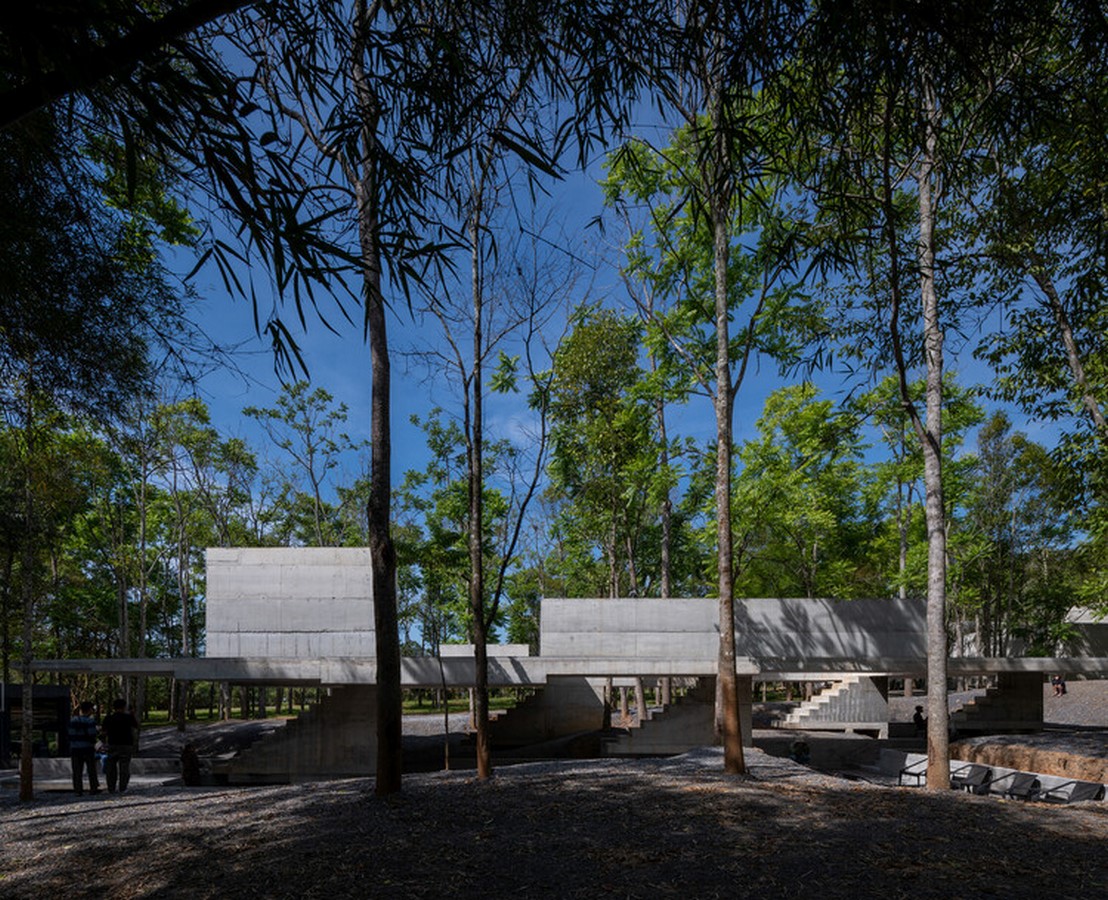
Utilizing Design to Enhance Perception
The design strategy involved placing a flat plane on the site to accentuate the slope and acknowledge the site’s conditions. This plane served a dual purpose, functioning as both a structural element and a functional space underneath it.
The Fundamental Roof
The flat plane evolved into the roof, becoming the fundamental element of architecture. Under this roof, activities unfold, allowing visitors to engage with the space while immersing themselves in the natural surroundings.
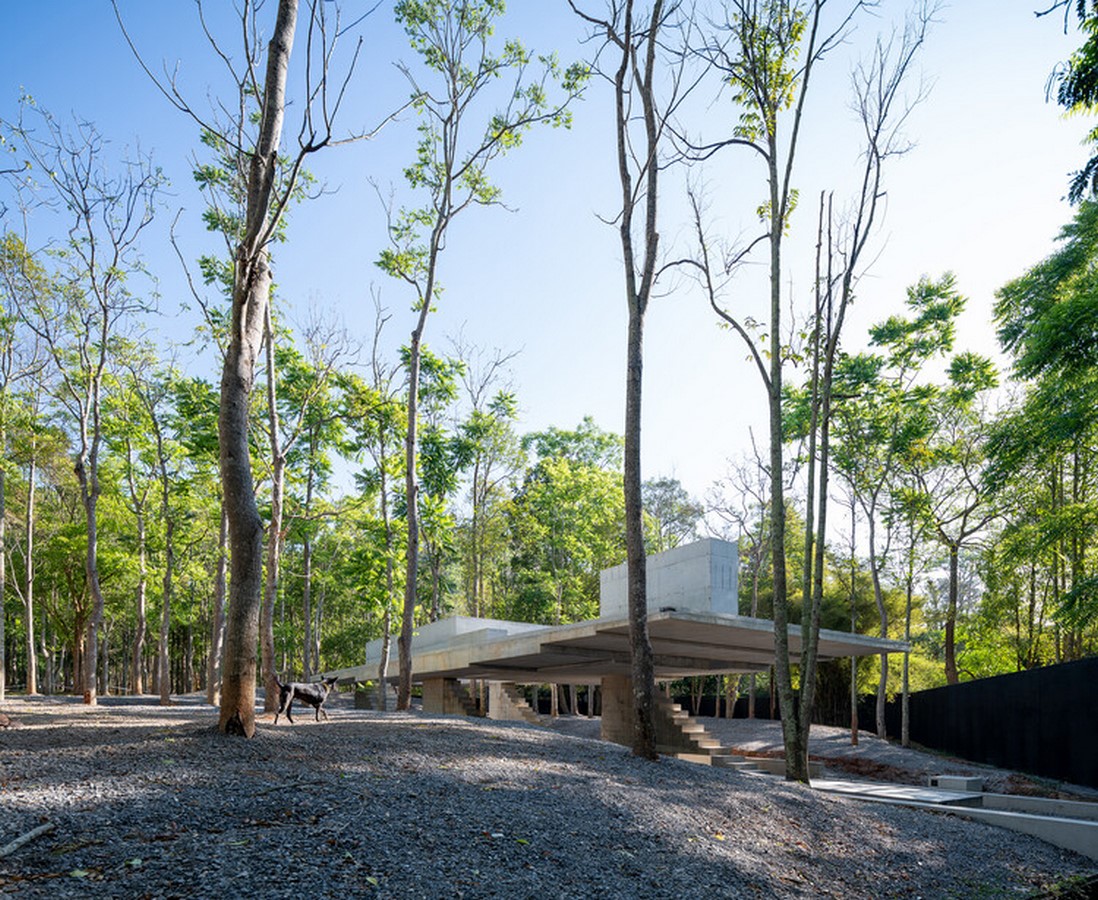
Respect for Nature: Truth, Geography, and Room
The project grappled with questions of respect for nature, challenging traditional notions of preserving the original ground. Instead, it embraced the dynamic nature of landscapes, recognizing that truth in nature lies in its ever-changing state.
Transformation of Ground
During the construction process, the excavation of structural footings altered the ground, creating unique spaces for drinking and dining. These excavated rooms, each referencing the building’s foundation, became integral parts of the café’s design.
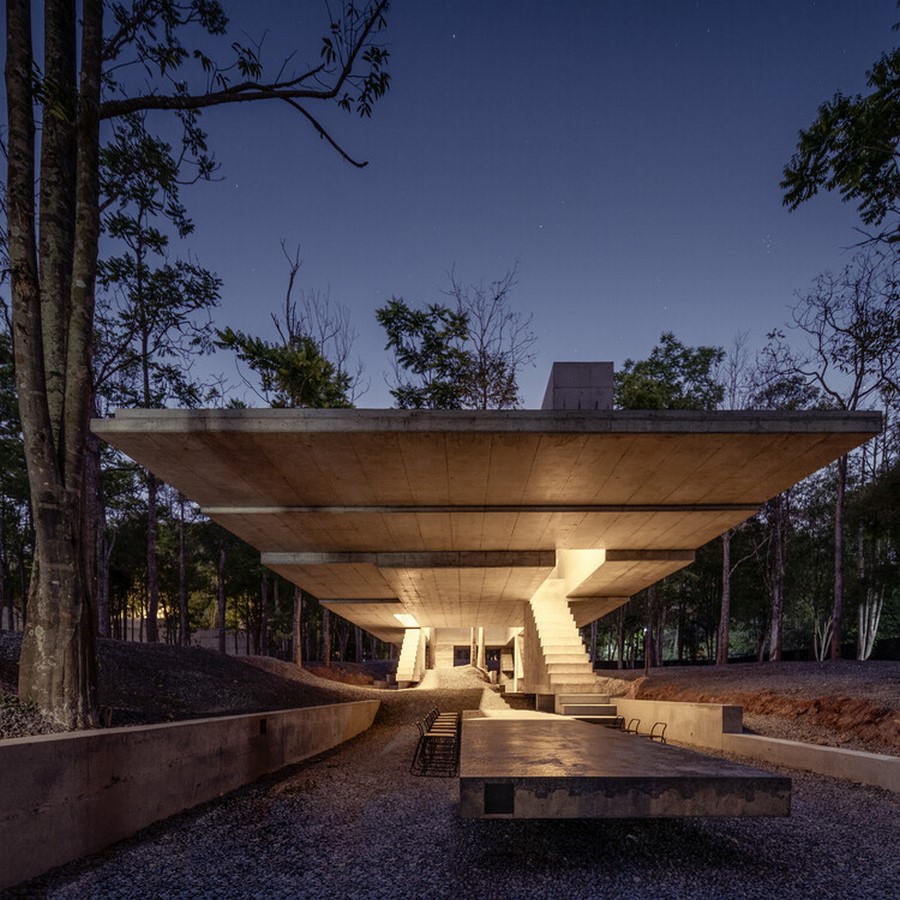
Integration of Structure, Construction, and Space
The design seamlessly integrated structural elements, construction techniques, and architectural spaces. Structural traces, construction variations, and room configurations were harmonized to create a cohesive and visually striking environment.
Conclusion
The Yellow-Mini Café stands as a testament to innovative design that celebrates and integrates with nature. By embracing the site’s hidden features and crafting a space that harmonizes with its surroundings, JOYS Architects have created a unique destination where visitors can immerse themselves in the beauty of Pak Chong’s landscape.

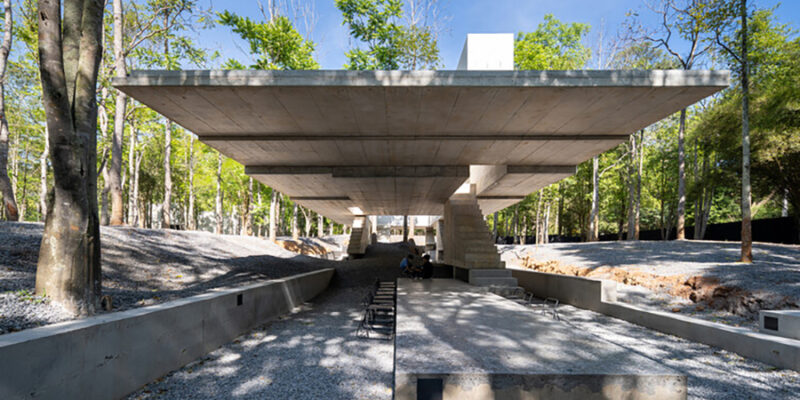
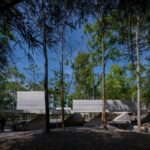
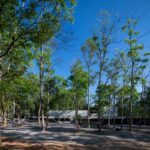
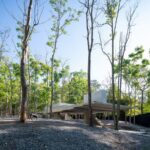
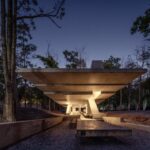
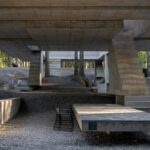
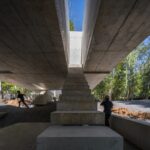
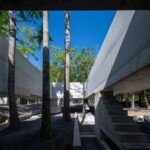
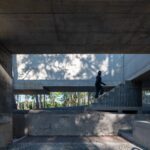
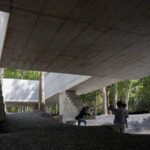
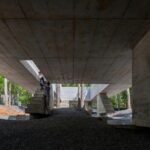
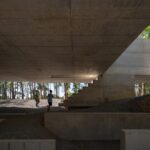
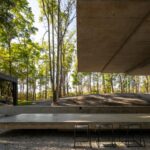
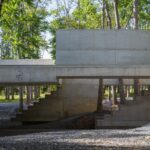
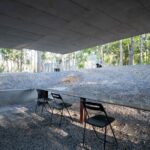
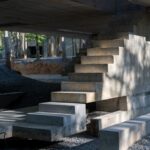
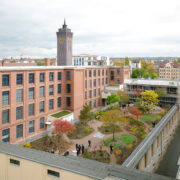
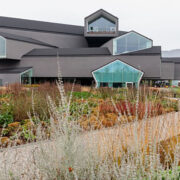
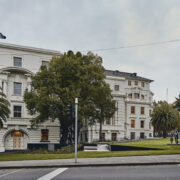
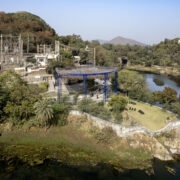
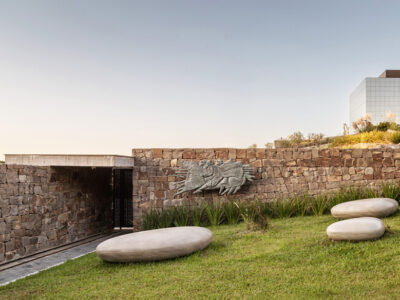
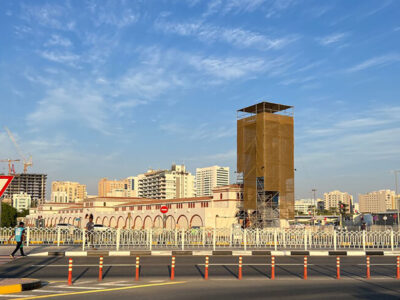
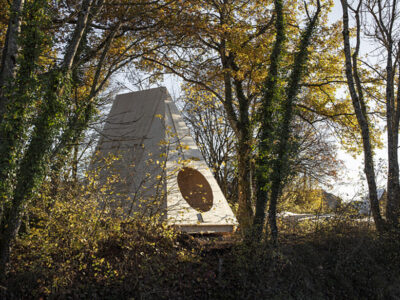
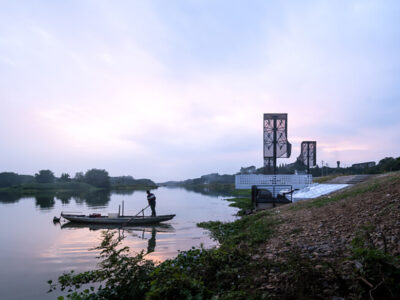
Comments